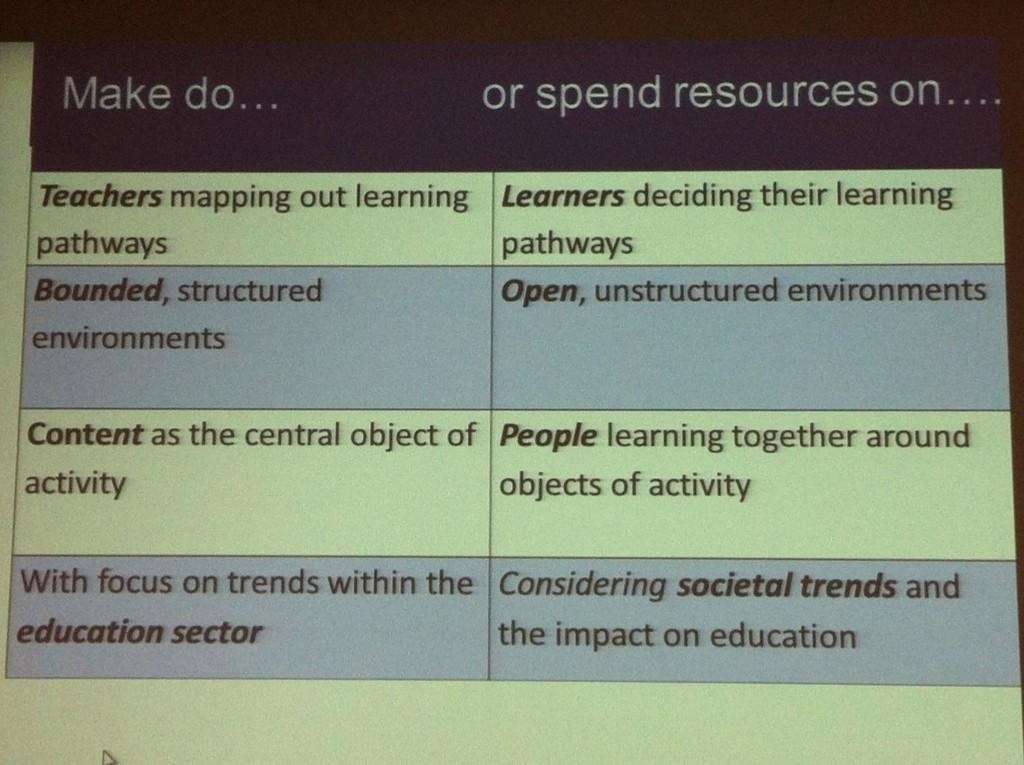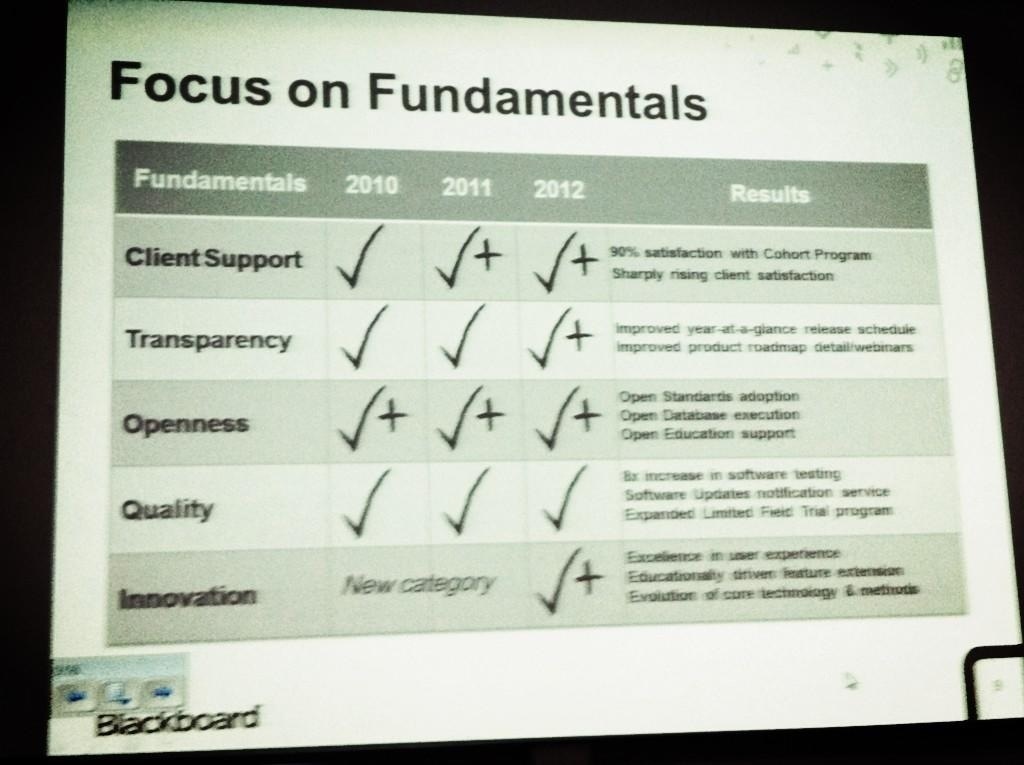 The 2013 Blackboard Users’ Conference was held at the welcoming University of Durham. With a full programme of research and experience from around the UK both College Learning Technology Assistants, David and Stephen, were able to attend and participate in the activities.
The 2013 Blackboard Users’ Conference was held at the welcoming University of Durham. With a full programme of research and experience from around the UK both College Learning Technology Assistants, David and Stephen, were able to attend and participate in the activities.
Presentations this year covered all aspects of Blackboard use, as well as a great insight from Blackboard themselves on the development of the Blackboard Learn product (of which we have version 9.2, service pack 8 at the moment).
The conference theme of ‘make do or spend’ is further explained by the organisers that
“.. at a time when the technologies that support learning are changing – we’ve seen mobile trying to go mainstream, institutions dipping their toes into the world of MOOCs, and apps for almost everything.”
and are we, UK HEIs doing enough to protect as well as develop ourselves in the changing economic climate.
Keynotes were from:
- Professor Alison Littlejohn, Glasgow Caledonian University: “The learning ecology: why the promise of an economy of scale has not been achieved”
- Greg Ritter, Blackboard Inc.: “Blackboard’s Take on the Conference Theme plus Roadmap”
- Jeremy Knox, University of Edinburgh: “MOOC pedagogy: the challenges of developing for Coursera”
Professor Alison Littlejohn, Glasgow Caledonian University: “The learning ecology: why the promise of an economy of scale has not been achieved”
- Sector/Institution focus belies what is happening outside and around you – ‘look up’ and see, collaborate, crowdsource, share, consult, and network.
- “Every graduate from the UK HE sector has the ability, confidence and mindset to plan and implement his/her own learning pathway, to achieve his/her learning outcome.”
- “Learning together through objects of activity” interesting, backed up with question “do inter-relationships change in pone, unstructured environments?
- MOOC mentioned but questioned about the learning in unstructured, yet networked environments.
- Collective knowledge cycle: connect to a resource/person; consume; create new knowledge; contribute new knowledge back to collective.
- How can learners be prepared? SRL (self-regulated learning) MOOC study hypothesis: “users who display a high degree of self-regulation …” Zimmerman: www.gcu.ac.uk/academy/srl-mooc/
- Throughout all of this, does the relationship change between academics (and therefore the Institution itself, including student support, administration, etc.) and students (attending or distance learners?). Each student will have different needs, and therefore different levels of requirement, based on attendance, background, and experience.
- Discussion around question “should networked knowledge creation be a mainstream approach to learning in universities?” concentrated, among my colleagues from Leicester, was “define mainstream?”
- Should we ‘Make Do or Spend?’
- Professor Littlejohn concluded with the phrase “To move forward we need to do some ‘unlearning’.”

Greg Ritter, Blackboard Inc.: “Blackboard’s Take on the Conference Theme plus Roadmap”
- Blackboard Analytics [product]: extract student data, from both Blackboard and Institution student-records systems, for use in reporting to different stakeholders.
- Focus on fundamentals, 2010 to 2012:

- Student engagement & retention, the ‘active learner‘: ebooks, text messages, etc. (learner-driven support processes), identify the at-risk students who do not engage.
- Data-driven decision making: improve student ‘success’, optimise online and blended learning, leverage VLE investment (capacity planning, measure learning initiatives, etc.), goal (and performance reporting) alignment, activity reporting, module/unit evaluation ‘announcement’ (desktop and mobile editions) and reporting.
- Student views and tweets are generally positive to Blackboard updates, changes are impressing the students and, when the changes to the discussion boards are made, will only increase!
Jeremy Knox, University of Edinburgh: “MOOC pedagogy: the challenges of developing for Coursera”
- cMOOC (connectivist) and xMOOC (Udacity / Coursera / edX – Institutional led): what is the value to the distinction between each?
- MOOC tutoring & support is ‘light touch’ approach with low study hours per week, with certificates for completion and not credit.
- Udacity is more corporate association developing MOOCs (for-profit, independent of institutions).
- Coursera is for-profit, partnered with 33 institutions. edX is non-profit partnered with 6 institutions.
- “One big difference between a MOOC and a traditional course is that a MOOC is completely voluntary. You decide that you want to participate, you decide how to participate, then you participate. If you’re not motivated, then you’re not in the MOOC.” Downes, S. (2011) What a MOOC does.
Here are some more reflections and feedback on the Conference:


 Subscribe to David Hopkins's posts
Subscribe to David Hopkins's posts
Comments are closed, but trackbacks and pingbacks are open.